While the dust is still settling on a successful Olympic Games, the indications are that Paris is ready to fully embrace the 17th edition of the summer Paralympics.
After sluggish ticket sales up to last month, many of the venues are now sold out, with the buy-in very much local.
Of the more than 1.75 million tickets already sold ahead of Wednesday's opening ceremony, 92% of the purchases were French, with buyers from the Ile-de-France region around Paris taking the lion's share accounting for 73%.
It highlights a remarkable journey for the Games since Dr Ludwig Guttmann first created the Stoke Mandeville Games in 1948 for wheelchair-bound war returnees, where eight sports were on show, compared to the 22 ready to be showcased in the French capital.
Even the short-term progress is noteworthy; RTÉ will broadcast 104 hours of TV coverage, up from five hours at London 2012.
Team Ireland's 35 athletes will be among the 4,400 athletes from 180 national Paralympic committees expected to compete, in addition to a Refugee Paralympic team and Neutral Paralympic athletes.
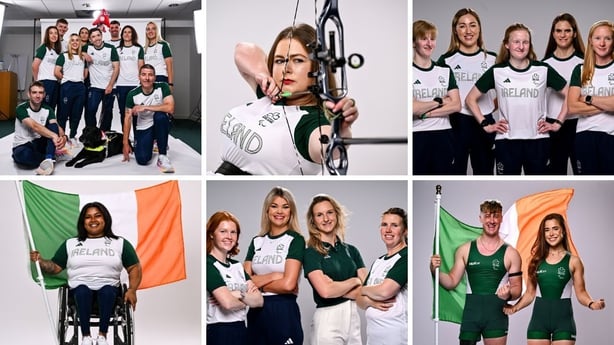
Ireland has a rich history in the Games, one of just 23 countries that participated in the first Paralympics in Rome in 1960, appearing in every edition since.
Joan Horan holds the distinction of claiming our first Paralympic medals – gold in archery and silver in swimming – from those inaugural Games 64 years ago, while swimmer Gary O’Reilly claimed our seventh and final medal in Tokyo, bringing our overall total to 230.
And what of our chances of increasing that number in Paris?
The soundings from those close to the team suggest that anything up to 10 medals is a realistic ambition, with the strongest contenders coming in the pool, road and track cycling, triathlon and athletics.
Ellen Keane will defend her SB8 100m breaststroke title, but will face huge competition from Great Britain’s Whiston Brock, who missed the Tokyo Games after issues around her eligibility and classification.
Keane’s participation in the S8 100m backstroke on Day 6 will be her final Paralympic act after her Games debut in Beijing aged 13.
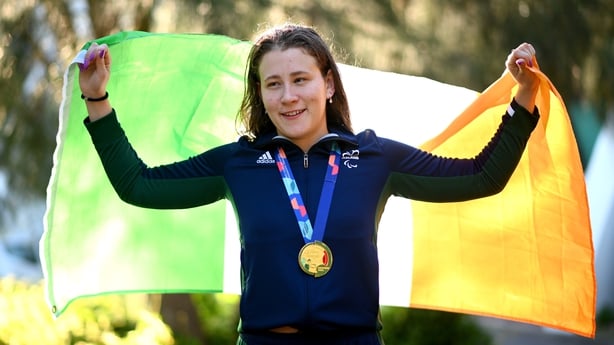
Having claimed five medals at the Para Swimming European Championships this year, Róisín Ní Ríain looks set to challenge for podium places, particularly in the S13 100m butterfly and 100m backstroke.
Nicole Turner took silver in the S6 50m butterfly three years ago, where it took a world record to deny her gold. The 21-year-old, buoyed by a big medal haul at the European Championships in Madeira this year, will again be aiming for the podium, with one of her medal rivals a Team Ireland colleague.
Paralympic debutant Dearbhaile Brady was bronze in the 50m butterfly at the aforementioned European Championships - Turner claimed joint-gold – and the 17-year-old will enter the competition full of confidence, while European medallist Barry McClements, having suffered a fractured femur last year, could pose a threat in the S9 100m butterfly.
Cycling is another area of strength for Team Ireland.
The formidable Katie-George Dunlevy has three gold and two silver from the Rio and Tokyo Games alongside Eve McCrystal, but a broken collarbone has hampered her preparations.
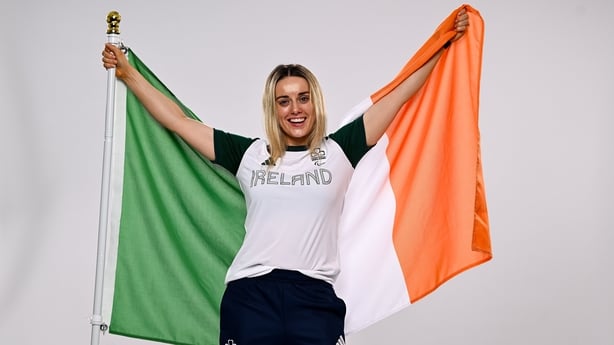
With Josephine Healion - pictured above - and Linda Kelly (pilot) collecting their own silverware over the last two years, it means there will be strong Irish challenges on the tandem bikes, regardless of the composition of the teams.
Richael Timothy has two days on both the track and the road, but her last event, the women’s road race on Day 10 could suit her strengths, while 2022 world champion Ronan Grimes has the pedigree to aim high on both the track and road.
The MacCombe twins, Chloe and Judith, will bring sibling rivalry to the triathlon event (PTV1), with the former ranked third in the world, while sticking to the same sport, former GB athlete Cassie Cava has lofty aspirations in the PTS4 class.
Sprinter Orla Comerford will look to maintain her Paralympic trajectory in the T13 100m, her sole event in Paris. Eighth in Rio, fourth in Tokyo, the Raheny Shamrock athlete ran her first legal sub 12 second race earlier this summer to lower her PB to 11.90, making her the highest ranked of the 24 entrants.
Michael Murphy in the Para equestrian is another of our medal hopes, coming into excellent form with Cleverboy in the lead up to the Games.
There is scope for others to podium.
Power lifter Britney Arendse was top-10 in Tokyo and has publicly stated her hope of a top-three finish, shot putter Mary Fitzgerald added a huge 64cm to her PB this summer and rowers Tiarnán O'Donnell and Katie O’Brien look strong on paper for the mixed double sculls, but have been hampered by a lack of time together in the boat.
The jump in standards across all sports has been huge, even in the three years since Tokyo.
"Take Orla Comerford's 100m event," explains Ireland’s Para athletics team manager James Nolan.
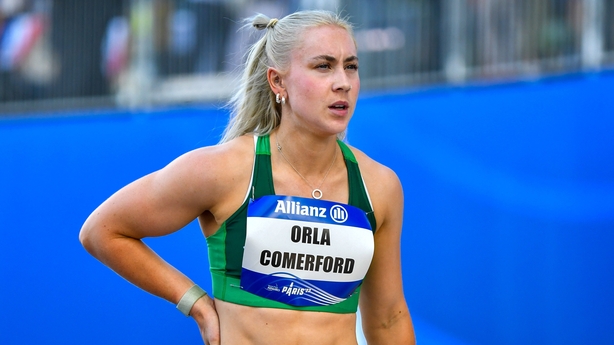
"There are just 0.15 of a second between the top five in her event. She could run a brilliant race, post a PB and still come fifth. The standard has gone through the roof."
For all the improvements within the sport, in terms of public perception, the significant change came in 2012.
"London was a real turning point for the public perception around abilities," Team Ireland’s Chef de Mission Neasa Russell explains.
"It was the first time the investment started to match the ambition of the Para Games. The athletes felt they were given respect for the first time, and respect is paramount to the athletes."
That respect has been slowly earned, but it’s getting there.
Parity of funding from Sport Ireland means Olympic and Paralympic medals are measured equally from a financial perspective. Funding into respective programmes is still evolving as national bodies learn how to best support their Para athletes.
In a similar vein to the development of women’s sport in the country, Para sports are now being assessed in a similar fashion the Olympics. Less of the superlative language around the athletes making it to the Games, and more of a focus on performance and standards.
Which should be the case given its definition; the Paralympics are the parallel Games to the Olympics.
"Para athletes are full-time, performance driven, where their livelihood depends on results," Russell adds.
"It’s still about trying to raise awareness, changing hearts and minds around people’s perceptions of people with disabilities and what they can do."
Piggybacking on the success of the Olympic Games will serve the Paralympic movement well.
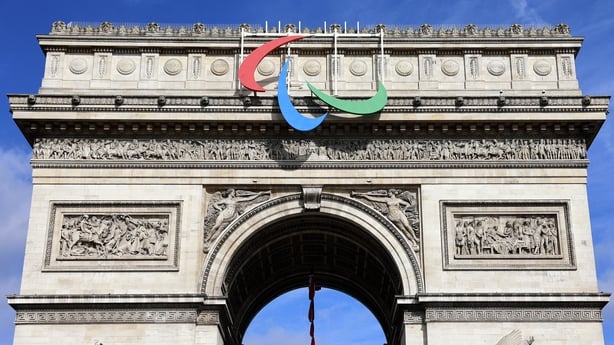
A total of 18 of the 35 Olympic venues will be used for Paralympic competition, including the Grand Palais which scored rave reviews for its hosting of the fencing and taekwondo.
There are no new sports among the 22 on the Paris programme – badminton and taekwondo made their debuts in Tokyo – and it will all kick off with a dazzling opening ceremony.
Similar to the Olympics, it will mark the first to be hosted outside a stadium, but instead of floating along the Seine in boats, the athletes will parade through the Avenue des Champs-Elysees to the Place de la Concorde with 65,000 spectators expected to watch on along the route.
After that it is over to the 4,400 athletes with physical, vision, and intellectual impairments to chase the 549 sets of medals up for grabs over 11 days of competition.
The 2024 Paralympic Games takes place from 28 August - 8 September. Follow all the action from Paris with our coverage on RTÉ.ie/sport and the RTÉ News app, watch live on RTÉ2 and the RTÉ Player or listen to updates and live commentaries on RTÉ Radio.



